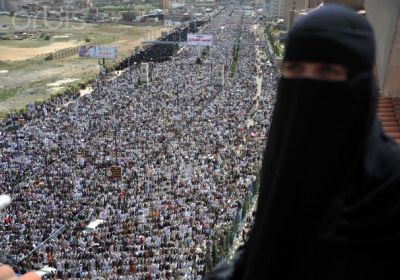
-
 Pro-democracy protesters in Bahrain have gone on the offensive in the face of government repression and harsh sentences for activists arrested in the first wave of protests in February and March. Large protests began on September 23 against sham by-elections for Bahrain’s toothless parliament. Most people heeded the democracy movement’s call for a boycott — only about 17% turned out to vote, FT.com said on September 25. Police blocked attempts by protesters to reach the previous epicentre of the protests — the now-demolished Pearl Roundabout, known as Martyr’s Square by protesters.
Pro-democracy protesters in Bahrain have gone on the offensive in the face of government repression and harsh sentences for activists arrested in the first wave of protests in February and March. Large protests began on September 23 against sham by-elections for Bahrain’s toothless parliament. Most people heeded the democracy movement’s call for a boycott — only about 17% turned out to vote, FT.com said on September 25. Police blocked attempts by protesters to reach the previous epicentre of the protests — the now-demolished Pearl Roundabout, known as Martyr’s Square by protesters. -
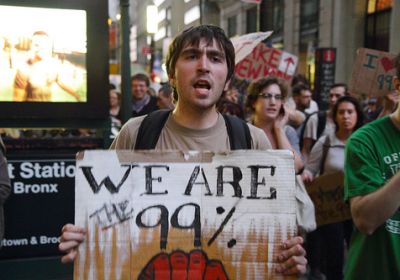
Inspired by the Arab Spring and Spain's movement of The Indignants (which began occupying city squares to build a citizens' movement for real democracy and against austerity), the Occupy Wall Street movement began taking to the streets in September in the famous financial district in New York.
-
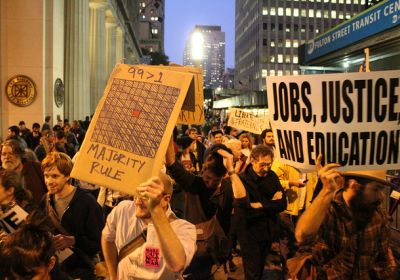
The declaration published below was unanimously passed by all members of Occupy Wall Street on September 29. It is the first official document for release.
-
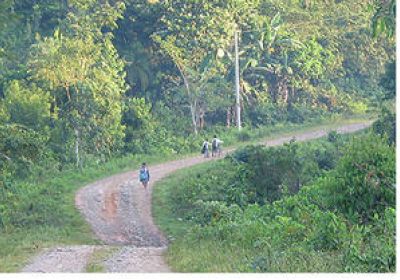
September 25 will go down as one of the darkest days in Bolivia since Evo Morales was elected as the country’s first indigenous president almost six years ago.
-
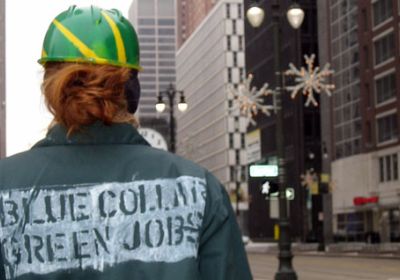 Newly released figures confirm unemployment is going through the roof, austerity measures are causing global unrest, huge strike action has occurred recently in place like Chile and the biggest strike in Britain since 1926 seems increasingly likely in November with plans for sustained industrial action into the new year. At the same time, we are becoming desensitised to news of whichever freak weather condition, flood, forest fire or natural disaster has just occurred in whichever country.
Newly released figures confirm unemployment is going through the roof, austerity measures are causing global unrest, huge strike action has occurred recently in place like Chile and the biggest strike in Britain since 1926 seems increasingly likely in November with plans for sustained industrial action into the new year. At the same time, we are becoming desensitised to news of whichever freak weather condition, flood, forest fire or natural disaster has just occurred in whichever country. -
Elections in the city-state of Berlin on September 18 delivered another serious blow to the government of German Chancellor Angela Merkel, even as her party’s vote increased. Merkel’s centre-right Christian Democratic Union (CDU) came in second place in the Berlin election, winning 23.4% of the vote – up from 21.3% in 2006.
-
United Nations-African Union joint special representative Ibrahim Gambari said in Khartoum on September 15, that attacks in Darfur were down by about 70% over the past three years thanks to the peacekeeping efforts. However, a September 16 statement by Hussein Abu Sharati, a spokesperson for Darfuri refugees and internally displaced persons (IDPs), angrily rejected the claims. He said the government “still commits genocide in Darfur” and that people are unable to return to their homes because it is unsafe.
-
 The lead-up to the payment of the sixth installment of International Monetary Fund (IMF) loans to Greece, to be handed out in October, finds Greek people in a state of shock and helplessness. The first “memorandum” agreement was signed by the Panhellenic Socialist Movement (PASOK) government with the IMF and European Union (EU) representatives in May 2010. It came after two decades of savage neoliberal attacks by successive New Democracy (the major right-wing party) and PASOK (so-called “socialist”) governments.
The lead-up to the payment of the sixth installment of International Monetary Fund (IMF) loans to Greece, to be handed out in October, finds Greek people in a state of shock and helplessness. The first “memorandum” agreement was signed by the Panhellenic Socialist Movement (PASOK) government with the IMF and European Union (EU) representatives in May 2010. It came after two decades of savage neoliberal attacks by successive New Democracy (the major right-wing party) and PASOK (so-called “socialist”) governments. -
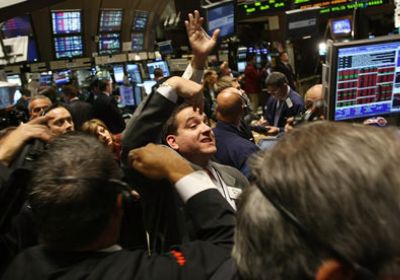 Speaking in Rome on September 15, Lorenzo Bini Smaghi, Italian executive board member of the European Central Bank (ECB), said of the design of the euro: “The assumption was made ― largely theoretical ― that there would be no crises.” Oh, indeed. And now with Europe and the world showing every sign of dipping into a recession that will further stress Euope's common currency, what is to be done?
Speaking in Rome on September 15, Lorenzo Bini Smaghi, Italian executive board member of the European Central Bank (ECB), said of the design of the euro: “The assumption was made ― largely theoretical ― that there would be no crises.” Oh, indeed. And now with Europe and the world showing every sign of dipping into a recession that will further stress Euope's common currency, what is to be done? -
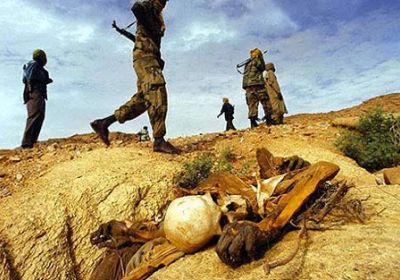 Two months after the secession of South Sudan, Khartoum’s ruling elite is making no retreat from the strategy that eventually forced the country’s division. This strategy includes marginalisation and neglect of the outlying regions; the forced imposition of Khartoum’s right-wing Islamic, pro-Arab agenda on Sudan’s culturally, linguistically and religiously diverse population; and brutal repression of dissent. The Sudanese Armed Forces (SAF) is waging wars on several fronts, from Darfur in the west to the states along the new southern border.
Two months after the secession of South Sudan, Khartoum’s ruling elite is making no retreat from the strategy that eventually forced the country’s division. This strategy includes marginalisation and neglect of the outlying regions; the forced imposition of Khartoum’s right-wing Islamic, pro-Arab agenda on Sudan’s culturally, linguistically and religiously diverse population; and brutal repression of dissent. The Sudanese Armed Forces (SAF) is waging wars on several fronts, from Darfur in the west to the states along the new southern border. -
The South Asian Social Forum will be held in Dhaka, Bangladesh, from November 18-22. Part of the World Social Forum, SASF takes the democratisation process as its core theme. The World Social Forum, which was formed in 2001, has its roots in the early 1990s and different NGO initiatives and activities parallel to those of the United Nations. Its formation was inspired by the mass upsurge across Latin America, in particular the struggle of the Zapitistas in southern Mexico and the 1999 Seattle protests against the World Trade Organisation.
-
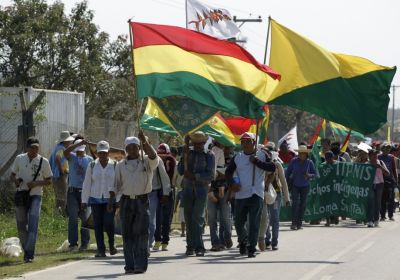
Statements, articles, letters and petitions have been circulating on the internet for the past month calling for an end to the "destruction of the Amazon".